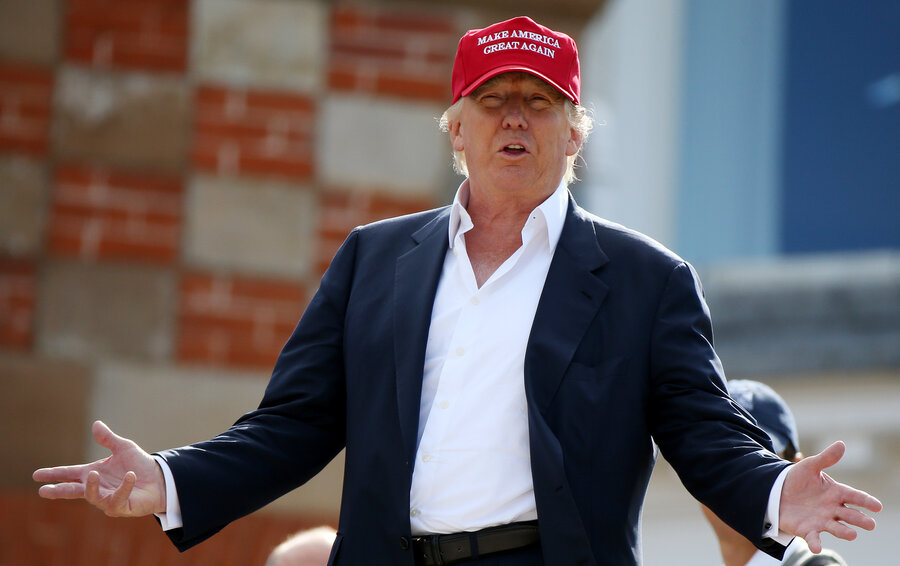- 17 Nov 2015 15:25
#14620449
It's probably close enough to the first primaries to start this up. As an opening, the current standings in the Senate, according to Larry Sabato's Crystal Ball:
So if the election were held today, the odds are that the Republicans would hang on to the Senate with a 51- or 52-seat majority.
And for the Republican primary, the latest (and post-debate) poll of Likely Republican Primary Voters:
Ages 18-39
Ages 40-64
Ages 65+
Republican
Non-Republican
Conservative
Moderate
Liberal
Attended High School
HS Graduate
Attended College
College Graduate
Graduate School
- Democrats not running (36)
- Safe Democrat (8): California (D), Connecticut (D), Hawaii (D), Maryland (D), New York (D), Oregon (D), Vermont (D), Washington (D)
- Leans Democrat (3): Colorado (D), Illinois (R), Wisconsin (R)
- Toss-Up (3): Florida (R), New Hampshire (R), Nevada (D)
- Leans Republican (3): Arizona (R), Ohio (R), Pennsylvania (R)
- Likely Republican (5): Indiana (R), Kentucky (R), Louisiana (R), Missouri (R), North Carolina (R)
- Safe Republican (12): Alaska (R), Alabama (R), Arkansas (R), Georgia (R), Iowa (R), Idaho (R), Kansas (R), North Dakota (R), Oklahoma (R), South Carolina (R), South Dakota (R), Utah (R)
- Republicans not running (30)
So if the election were held today, the odds are that the Republicans would hang on to the Senate with a 51- or 52-seat majority.
And for the Republican primary, the latest (and post-debate) poll of Likely Republican Primary Voters:
- Jeb Bush 8%
- Ben Carson 20%
- Ted Cruz 13%
- Carly Fiorina 4%
- Marco Rubio 16%
- Donald Trump 27%
- Some other candidate 7%
- Not sure 5%
Ages 18-39
- Jeb Bush 12%
- Ben Carson 23%
- Ted Cruz 6%
- Carly Fiorina 4%
- Marco Rubio 11%
- Donald Trump 32%
- Some other candidate 7%
- Not sure 6%
Ages 40-64
- Jeb Bush 7%
- Ben Carson 19%
- Ted Cruz 15%
- Carly Fiorina 4%
- Marco Rubio 18%
- Donald Trump 26%
- Some other candidate 8%
- Not sure 4%
Ages 65+
- Jeb Bush 8%
- Ben Carson 18%
- Ted Cruz 17%
- Carly Fiorina 5%
- Marco Rubio 18%
- Donald Trump 23%
- Some other candidate 6%
- Not sure 5%
Republican
- Jeb Bush 8%
- Ben Carson 21%
- Ted Cruz 12%
- Carly Fiorina 5%
- Marco Rubio 17%
- Donald Trump 27%
- Some other candidate 7%
- Not sure 3%
Non-Republican
- Jeb Bush 12%
- Ben Carson 15%
- Ted Cruz 16%
- Carly Fiorina 1%
- Marco Rubio 15%
- Donald Trump 25%
- Some other candidate 8%
- Not sure 9%
Conservative
- Jeb Bush 6%
- Ben Carson 21%
- Ted Cruz 18%
- Carly Fiorina 4%
- Marco Rubio 19%
- Donald Trump 25%
- Some other candidate 4%
- Not sure 4%
Moderate
- Jeb Bush 16%
- Ben Carson 19%
- Ted Cruz 3%
- Carly Fiorina 5%
- Marco Rubio 12%
- Donald Trump 25%
- Some other candidate 13%
- Not sure 6%
Liberal
- Jeb Bush 11%
- Ben Carson 12%
- Ted Cruz 0%
- Carly Fiorina 2%
- Marco Rubio 4%
- Donald Trump 40%
- Some other candidate 27%
- Not sure 4%
Attended High School
- Jeb Bush 7%
- Ben Carson 3%
- Ted Cruz 10%
- Carly Fiorina 0%
- Marco Rubio 3%
- Donald Trump 69%
- Some other candidate 9%
- Not sure 0%
HS Graduate
- Jeb Bush 3%
- Ben Carson 16%
- Ted Cruz 13%
- Carly Fiorina 2%
- Marco Rubio 17%
- Donald Trump 35%
- Some other candidate 7%
- Not sure 6%
Attended College
- Jeb Bush 5%
- Ben Carson 23%
- Ted Cruz 15%
- Carly Fiorina 1%
- Marco Rubio 15%
- Donald Trump 25%
- Some other candidate 7%
- Not sure 8%
College Graduate
- Jeb Bush 12%
- Ben Carson 19%
- Ted Cruz 15%
- Carly Fiorina 7%
- Marco Rubio 16%
- Donald Trump 23%
- Some other candidate 6%
- Not sure 2%
Graduate School
- Jeb Bush 13%
- Ben Carson 20%
- Ted Cruz 8%
- Carly Fiorina 6%
- Marco Rubio 20%
- Donald Trump 20%
- Some other candidate 8%
- Not sure 5%
Society cannot exist, unless a controlling power upon will and appetite be placed somewhere; and the less of it there is within, the more there must be without.
—Edmund Burke
—Edmund Burke


















 - By Tainari88
- By Tainari88 - By wat0n
- By wat0n